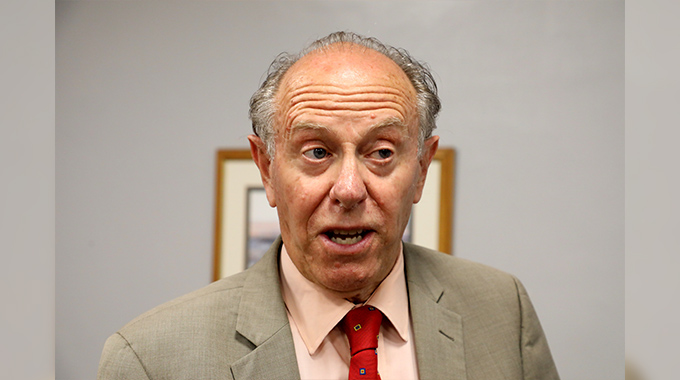The league will be poorer without Chinyama

The website continued, Tikki-Tikki and tsamaya, shibobo, shushine piano and laduma; South African football separated itself from European football in the sense that it never lost its street identity. As the English, Italian and Spanish focused on the goals and the defence, the South Africans focused on the beauty of the game.
“(They) aspire not to score a goal, still less win a tackle, but to do a trick that sends an opposing defender flying the wrong way, and then stand on the ball in triumph, or perhaps, as a flourish, step over it.”
The South Africans focused on the skills and the trickery, the players went out there to entertain, and to make sure the crowd got a show.
Yet football in South Africa was not just about the skill, it was a symbol of hope and unity, and was a game that would allow the oppressed South African’s of the apartheid era, and the poverty stricken South Africans of today to forget about the hardships they faced, and relax and enjoy themselves with the beautiful game.
On Robben Island, the football matches enabled the prisoners to enjoy themselves in “one of the ugliest hell-holes on earth.”
On the streets of South Africa, the clubs enabled every supporter to feel a sense of unity and togetherness, the matches enabled them to forget about the poverty surrounding them, and the game allowed them to harbour the hope of a contract, making it big overseas, and to become a hero and idol for the next generation. With the 2010 World Cup jobs were created, the infrastructure of the country was improved, and the world got to see the side of South Africa that the media never portrayed.
Football is a vital part of the South African culture and society. It is something that the country can use to unite, and that the people can use to ensure that their lives become that little bit better.
In South Africa, football is everywhere. Walking through a township like Khayelitsha or Soweto, one will be struck by the pure love for football. Hundreds of children play barefoot matches with a tattered ball on a patchy surface, club colours, be it Pirates, Chiefs or Celtics, are strung out for the world to see, and football is “…like the weather in Britain, the teams and players of Premiership football are the commonest topic of conversation in Africa. In a thousand African languages, Arsenal, Chelsea, Drogba and Rooney are the coinage of human discourse. From the streets, bars, airports, palaces and touchlines of Africa … Africans play, talk, eat and sleep football …” (Richard Dowden, Director of the Royal African Society).
The above paragraphs are used to describe the game down South and also to show its impact on the lives of the ordinary South Africans. Last week, I raised issues about our players flocking down South and the feedback from readers was that players have to go where there is money and the league down South was paying well and had no restrictions when signing players from elsewhere.
Just like in the old days when our grandparents used to travel to South Africa, then referred to as Wenela to work in mines, our footballers keep flocking to South Africa in search of the “dime.”
While most Zimbabwean players who have gone to South Africa have not been able to climb the ladder and go to more competitive European leagues where they are assured of more exposure and development as individual players, which will then help shape the destiny of the national team, we have to be content with that some local clubs are making some money to keep going in our under-funded league.
The players who are also lucky to earn contracts in South Africa are able to earn a decent living to uplift the lives of their families, which is the main reason why people go to work.
The influx of Zimbabwean players to South Africa, from the old days when a few like Ebson “Sugar” Muguyo went there, to the time when Rabson “Safarina” Muchichwa and the Mugeyi brothers (William and Wilfred) and Benjani Mwaruwari made an impact, right up to the recent years when Khama Billiat and Knowledge Musona showed the gap between Zimbabwean and South African talent, has continued to flow and in the next few days more Zimbabwean names will be wearing South African club shirts.
The biggest name that is definite to go to South Africa is Dynamos and national team striker Takesure Chinyama. The big striker turns 30 in September and according to media reports yesterday, he had already passed a medical at Orlando Pirates and his agents have brokered a three-year deal with an option of a two-year extension.
You get a feeling that at 30, the striker saw his best days while playing in Poland, but he appears to be getting better with age and as predicted by football commentator Charles Mabika, who was quoted by The Herald yesterday, he still has what it takes in leagues bigger than the local PSL.
“Takesure has started the season with a bang and playing at a level that is way, way higher than the local Premiership standards. To me, the level that I have seen him play in the games against Motor Action and Hardbody, is not even for the South African Premiership because that would be a waste of his talent. Takesure is playing at a level that you see from strikers playing in Europe and I have to say it clearly that I have been impressed so much by what I have seen in those two games. Takesure makes sure defenders feel his presence and he uses his strength well and you can tell, with his decision making, that he is playing at a different wave length and that is why he has been successful so far and, by the way, it’s not an easy thing to come and make a big impact leading the line at DeMbare.”
I suppose Charlie summed it up. However, his departure will certainly weaken the defending champions who are also likely to lose influential goalkeeper Washington Arubi, who is wanted by Black Leopards, and midfielder Denver Mukamba, who is on trial at Bidvest Wits.
Mukamba left early this week for trials at Pretoria University, but reports indicated yesterday that he did not even train in Pretoria, as he was whisked away by Wits to Johannesburg where he is likely to join Tinashe Nengomasha, Thomas Sweswe and goalkeeper Energy Murambadoro, who are already at Wits.
South African back-to-back champions Pirates are not usually keen on Zimbabwean players, with only former Highlanders striker Ralph Matema having signed for the club in recent years, although he was loaned to a Division One side after just one season. Another local player with the Buccaneers in recent years was defender Zvenyika Makonese, who was offloaded last year. The fact that Pirates were attracted to Chinyama, when they have another seasoned forward like Benni McCarthy, speaks volumes of Chinyama’s potential and his absence in the local league will not only impact negatively on DeMbare, but on the entire league.
The level of competition and quality on the field of play will go down after a host of local players have been snapped by South African clubs. Some of the players linked to the Super Diski are Highlanders star midfielder Mthulisi Maphosa and Caps United attacking midfielder Rahman Kutsanzira. In fact, Maphosa went for trials at Pretoria University a fortnight ago and Bosso are awaiting feedback from the club. There seems to be confusion on whether the player was part of players fingered in the Asiagate scandal but his management insists that he never took part in any match with the national team or his former former club, Monomotapa, in Asia.
They say he was only called up by Zifa to clarify why he fought with one of the coaches at Monomotapa during a Champions League match, after he accused one of the coaches of having received money to influence players to lose the game. And Zifa did not sanction any club player over Champions League matches. Another player who has also been linked to South Africa is Hardbody midfielder Richard Jongwe, who reportedly went for trials at Pretoria University a couple of weeks ago, and two players from Gunners who are also club hunting in South Africa. Come the beginning of the second half of the season, the league could have lost three or four key players, who would have had a big say on the Premiership race.
For comments and contributions email [email protected]. You can also follow the writer on Facebook and Twitter.










Comments